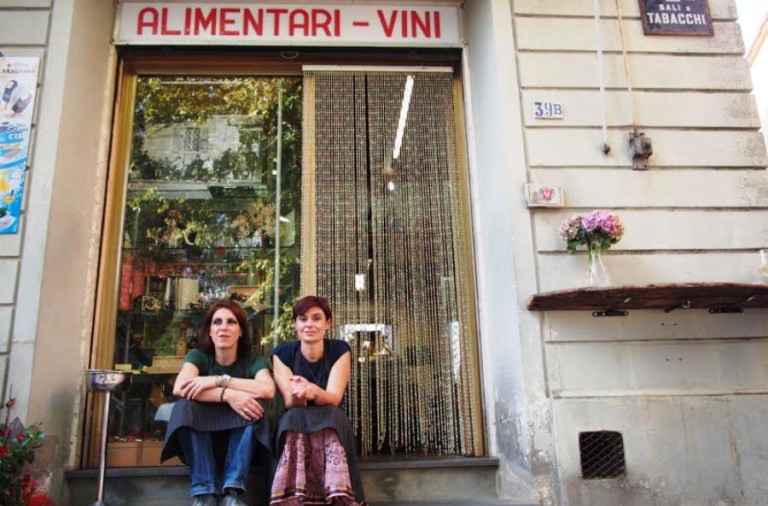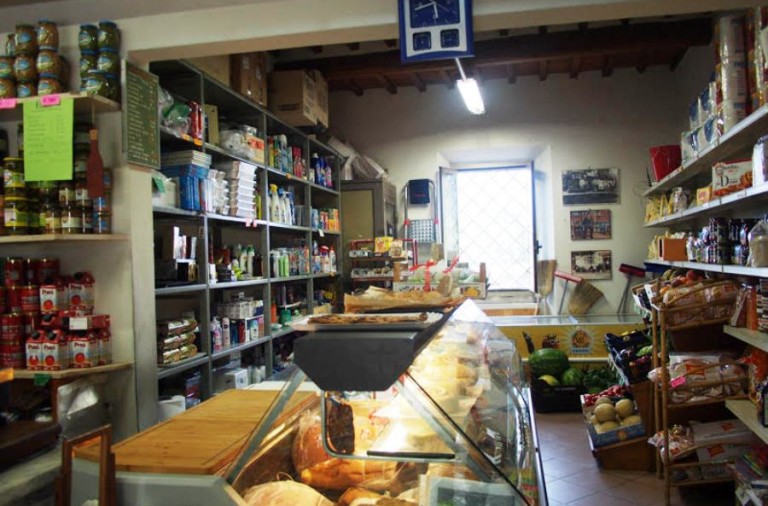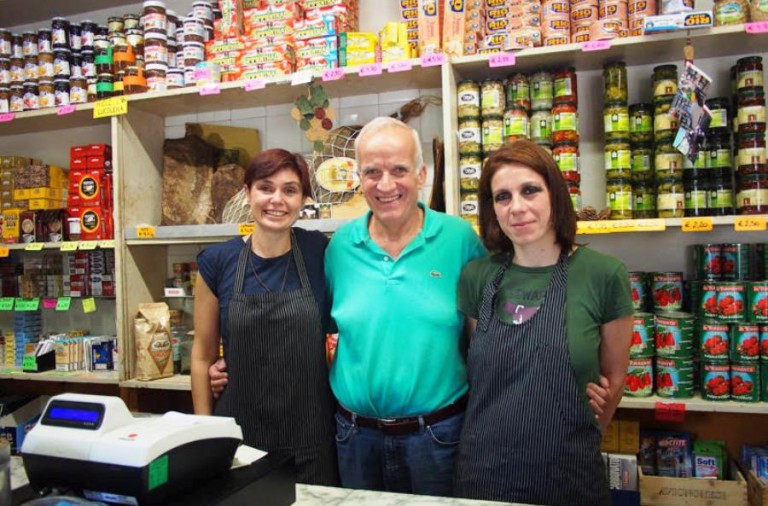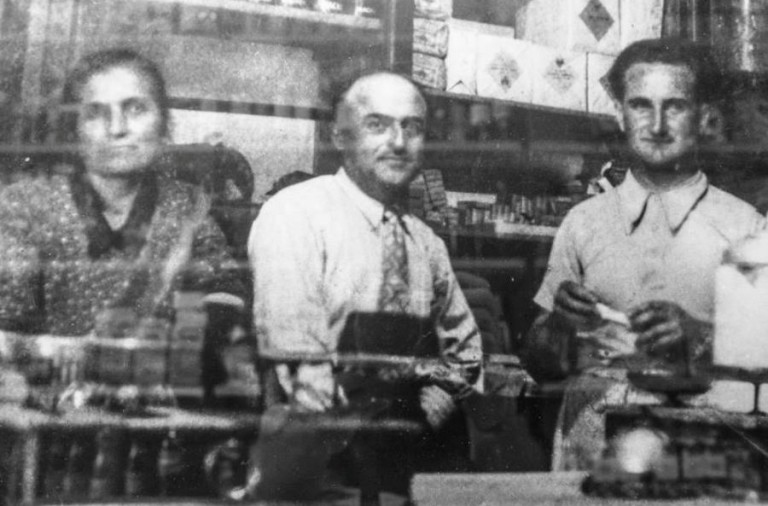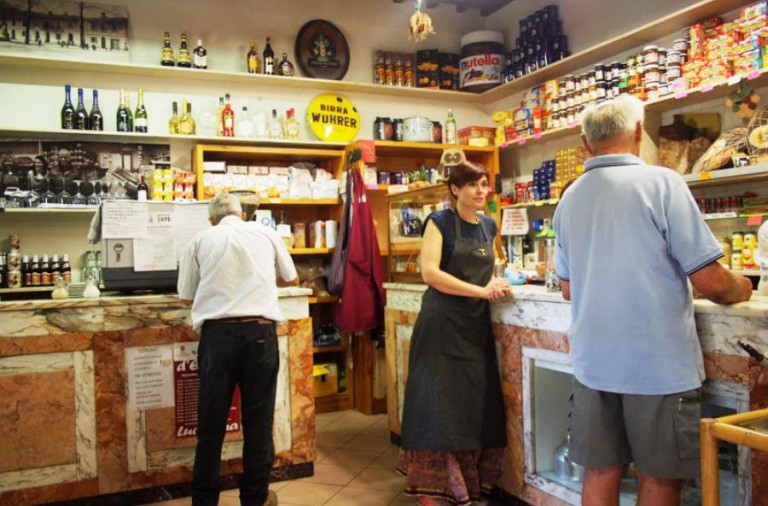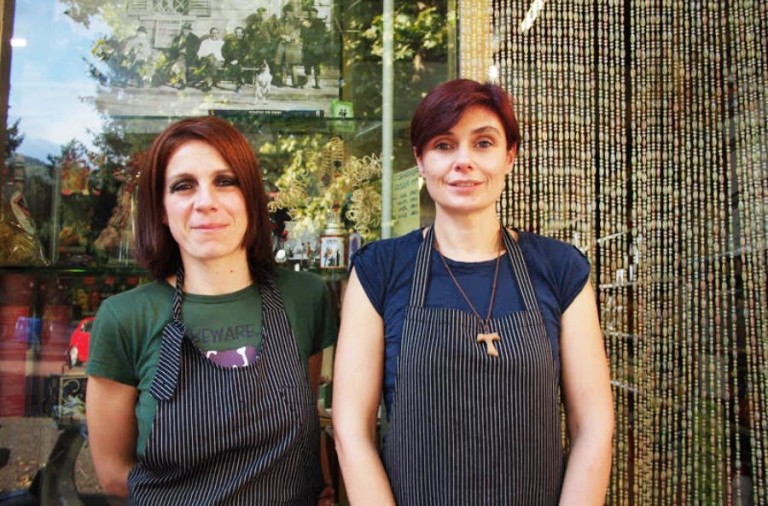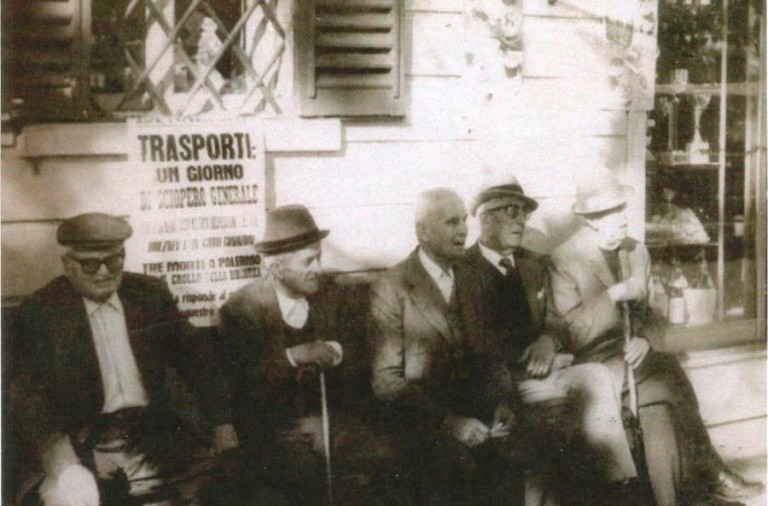Articolo disponibile anche in: Italian
It is mainly for love of Lucolena that this story starts. Two young women decided to get into business and take over the village’s historical grocery shop.
Elisa Brezzi, lives in Lucolena, a small hamlet of Greve (about three hundred inhabitants), since she was born, while Giulia Nesi moved here in 2008, to start a family with her boyfriend, of many generations from Lucolena.
It all begins in the summer of 2013, when the owner of the shop Enrico Ermini (who inherited it from his father Mario and ran the shop for nearly thirty years with his wife Carla) decides that it is time to quit.
Elisa and Julia go for the enterprise, setting up a company and taking over in January 2015. It’s the passing of the baton, which allows you to continue a story of over a century and not just so to speak.
Its history dates back to the ’10s of the twentieth century, again thanks to a woman, Vittoria Ermini, who opens the shop and makes it become a reference point for the area. The shop’s banner quotes: “Trattoria dei cacciatori a tempo perso con pane e vino e generi diverso” (Tavern for hunters and time to spare with bread and wine and various goods). In 1935 the property passes to Mario Ermini, that, despite the same surname, is no relative of Vittoria’s.
Enrico was born in 1946 and the shop was his home. He handles it from an early age with his father, who leaves him everything in the early 90s (Mario died in ’92). In the 30s in the shop becomes the local restaurant and later bread is made and sold too. You are served, play cards and there is a lot of smoking.
In the ’50s the first TV is here to watch “Lascia o raddoppia” (Double or Nothing), “Rischiatutto” (risk your win) and the most popular programmes of the time.
Elisa and Giulia came quietly, with great respect for the tradition of this place. Inside the shop, adorned with handmade products that the village people donated, everything remained as it was.
And people paid them back with their affection and sympathy. “It was not granted – says Elisa – sometimes in villages, especially small ones, there is some resistance to change.”
Watching customers come and go from the shop confirms how much the two girls are liked. Someone jokingly calls them “Le Enrichette” (Henriettes), since it has always been Enrico’s (Henry’s) shop. He now looks on Elisa and Julia tenderly, but knows he has left two serious and reliable people.
